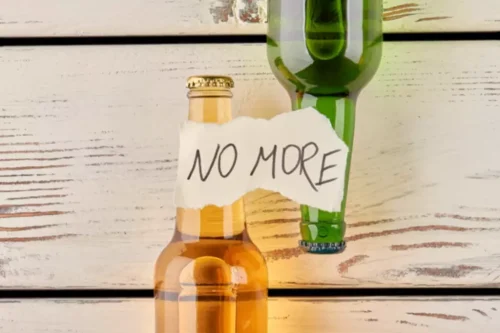Nanci Stockwell of Advanced Recovery Systems discusses the risks of detoxing at home and the benefits of detoxing from alcohol and other drugs in a safe environment. Another clue that can be an indication of an unhealthy relationship with alcohol is if you make “rules” around drinking. However, certain food groups also have benefits when it comes to helping with the discomfort of withdrawal symptoms and detoxification. There are several ways to taper your alcohol consumption without therapy. Take our short alcohol quiz to learn where you fall on the drinking spectrum and if you might benefit from quitting or cutting back on alcohol. It’s common for the first symptoms to appear within a few hours after your last drink.
Cons of Tapering off Alcohol
In most cases, the longer you take to wean off the effects of alcohol, the less severe your withdrawal symptoms should be. However, it can be challenging to stick with a long-term tapering schedule, so you have to find the right balance for you. This condition most often occurs when someone who has long-term alcohol dependence stops drinking cold turkey. But if heavy drinkers cut back on their average number of drinks too quickly, they may be at risk of life-threatening withdrawal symptoms. You may decide to seek medical treatment for your withdrawal symptoms or make the choice to enter a professional detox or rehab center.
Start Your Journey To a Sober Tomorrow
If you turn to alcohol to manage emotional distress, the added overwhelm can prompt the urge to drink, making success seem even more out of reach. What’s most important is looking at your drinking habits and finding a way to cut back that works for you. Educate your loved ones on dangerous symptoms, too, so they can look out for you and get you medical attention if you need it. Seizures can occur within the first 24 hours, but seizures occur only in about 25 percent of patients, according to the NIAAA. Tapering can help you overcome alcohol dependence, which is a side effect of chronic alcohol use that causes cravings and withdrawal.
- Alcohol works by increasing the potency of a neutral chemical in the brain called GABA, or gamma-Aminobutyric acid.
- It is important to only attempt a taper while under a doctor’s care.
- It does, however, result in any withdrawal symptoms that do occur being prolonged over the entire period of the taper.
- But a full detox is needed for the most benefit, and how much time that takes depends on a variety of personal factors.
- They can take you to the hospital or help you get medical support.
Can Alcohol Addiction be Safely Tapered Off?
Consuming more than that can lead to liver damage and heart disease, and increase your risk for some cancers. Go to the nearest emergency room or call 911 (or your local emergency service number) if you or a loved one has any concerning symptoms of alcohol withdrawal. Alcohol withdrawal can range from very mild symptoms to a severe form, known as delirium tremens. If you feel comfortable doing so, discuss your challenges with your primary healthcare professional. Finding a therapist can also be a great starting point if you’re uncomfortable opening up to your healthcare professional. Exploring, in writing, what you find difficult and when you most want to drink can help you notice patterns that offer more insight into your alcohol use.
- This is dangerous because if you have unsuccessfully tried to stop drinking in the past with only mild withdrawal symptoms, you may assume you can handle another attempt on your own without help.
- If you’ve been drinking heavily for a long time and think you might experience withdrawal symptoms, it’s best to talk with a medical professional before you begin a taper.
- If you suddenly quit drinking, your body can struggle to catch up.
- We publish material that is researched, cited, edited and reviewed by licensed medical professionals.
- The consequences of quitting alcohol cold turkey can be serious and lead to alcohol withdrawal syndrome, which can be fatal in severe cases.
- Becoming more aware of your alcohol triggers and reasons for drinking can help you plan ways to help manage the urge to drink.
- If you are interested in medical detox, contact one of our Vertava Health treatment specialists to find alcohol detox programs near you.
Tapering is the process of gradually weaning off alcohol rather than quitting cold turkey. If your body is used to a certain amount of alcohol, you may feel certain effects when you stop. How how to taper off alcohol you feel when you stop drinking is largely based on how often and how heavily you drink. People who only drink occasionally probably won’t notice any physical or psychological symptoms.
This can give your body the chance to adjust, helping you avoid the worst of withdrawal symptoms. When done under medical supervision, tapering off alcohol has few downsides. However, tapering can sometimes be unsafe if you attempt to do so on your own without a doctor’s knowledge.
How To Wean Yourself off Alcohol Safely
The assessment should also include a validated measure of withdrawal symptom severity, ideally with the same instrument as the initial assessment. If you’re a heavy drinker, you may need to wean off alcohol to let your body adjust. If you’re experiencing severe symptoms of alcohol withdrawal, be sure to talk to a healthcare provider. If alcohol withdrawal is so dangerous, is tapering off alcohol necessary for everyone who drinks?
Keep it interesting and varied with sparkling water, virgin cocktails (also known as mocktails), fruit juices, low-fat milk, or kombucha. You may also consider joining an online support group to help you feel less alone. Letting others know about your choice to stop drinking may help motivate you to stick with your decision.
However, even the best-designed tapers can put you at risk for alcohol withdrawal syndrome. For this reason, you should never start an alcohol taper before clearing with your doctor. Inpatient treatment may be an expensive option in terms of time and money. Unlike inpatient treatment, tapering allows people to maintain their lifestyles while improving their drinking habits.
- For people who moderately consume alcohol, tapering off may be a good option.
- On the other hand, binge drinking is generally defined as four drinks for women and five drinks for men within a two-hour period.
- But, with a little prior knowledge on how to taper off alcohol, adequate planning and professional consultation from a healthcare provider, it can certainly be done.
- This can equate to as much as a full bottle of beer or less than two tablespoons of whisky.





